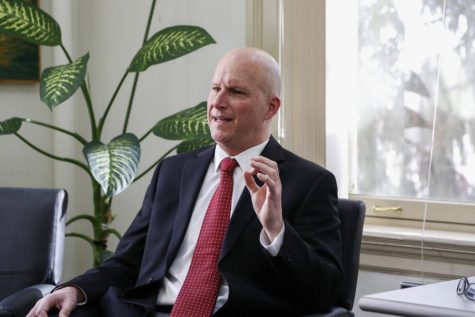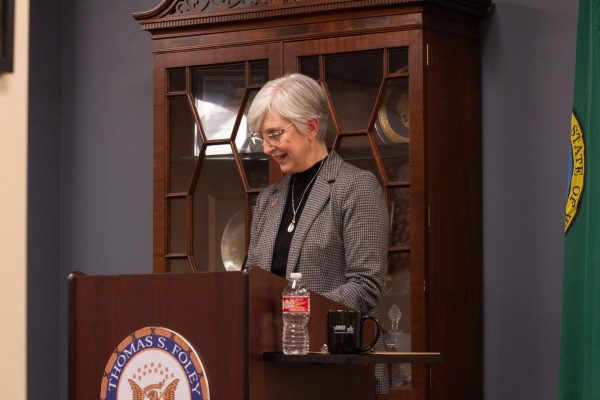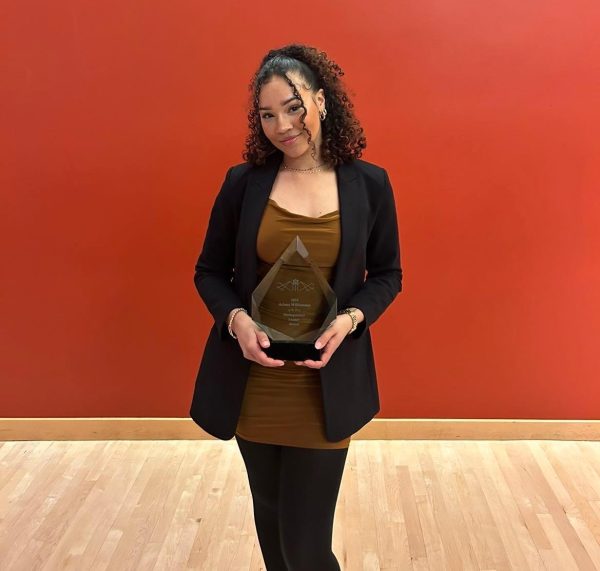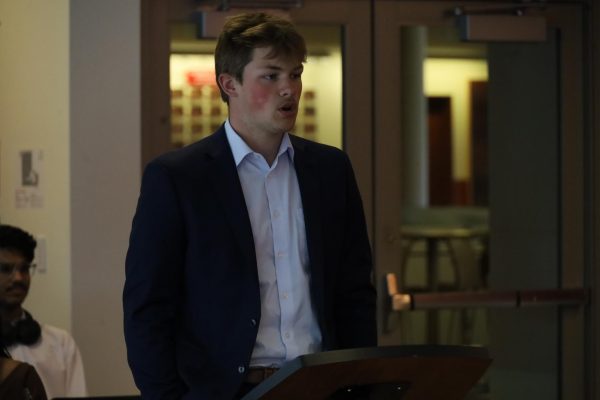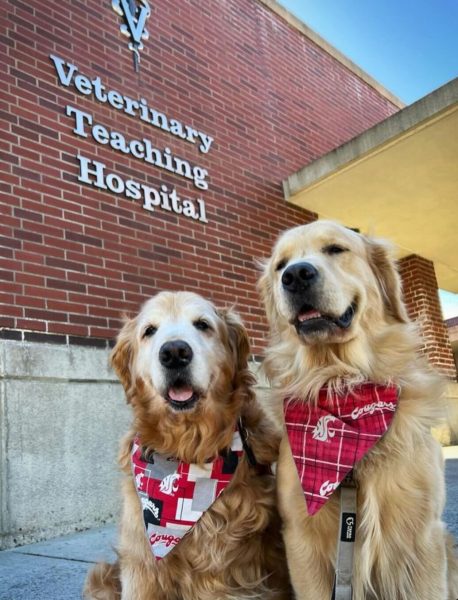Global fresh water supply drying up
September 20, 2013
Water will be the new oil if consumption of the precious resource does not change, said National Geographic fresh water conservationist Sandra Postel.
Postel was the featured speaker at this year’s Lane Family Lecture in Environmental Science hosted by the School of the Environment. Postel is a world expert on issues of fresh water and the ecosystems it affects.
Postel has studied issues of water and environmental health for more than 25 years. From 1988 to 1994, she served as vice president for research at the Worldwatch Institute. In 2002, she was named one of the Scientific American 50.
Today she directs the Global Water Policy Project, which she founded, and works as a fresh water conservationist for National Geographic.
“I firmly believe that our human story over the next several decades will very much be one of water,” Postel said. “Water will be to the 21st century what oil was to the 20th century.”
She went on to explain that fresh water is quickly becoming a commodity in a modernized world.
“Only two and a half percent of all the water on earth is fresh, and two-thirds of that is ice, locked up away from us,” she said. “Over the past 40 years we’ve seen a doubling of our groundwater depletion.”
Freshman Luis Villegas was surprised by the rate at which water sources are depleting.
“The stats at the beginning were pretty shocking – how much water we use and how much is available to us,” Villegas said. “It’s disappearing.”
Postel illustrated how a declining supply fresh water is creating conflict throughout the world.
“We have a map of water stress globally that’s getting redder and redder and redder with each passing year,” she said. “What we’re beginning to see in these red zones is more and more competition for water.”
Competition arises when bordering countries, states and towns throughout the world are forced to share a dwindling water supply, Postel said.
“Everything we buy and use and eat takes water to make,” she said.
It takes approximately 700 gallons of water to produce a single T-shirt, from watering cotton fields to the manufacturing process, she said. Similarly, she said it takes more than 600 gallons to produce a standard beef hamburger.
“I just think it’s kind of amazing how much water we use daily,” freshman Megan Allen said. “We don’t have an infinite amount.”
Postel said as much as 50 percent of the world’s wetlands have disappeared in recent decades along with the world’s lakes, rivers and oceans.
“Rivers don’t run like rivers anymore,” she said. “They’re more like a faucet.”
She explained that dams have enabled people to turn rivers ‘on’ and ‘off’ at will.
“They’re basically tapped-out. There’s nothing more to suck from them,” she said. “It’s a pretty daunting picture, in my view.”
Regardless of the images she depicted, Postel remained optimistic.
“Rivers do heal,” she said. “You give them a chance, and they’ll come back. The life will come back.”
The removal of dams around the world is a step in the right direction for global environmental health, she said, pointing to the return of Chinook salmon to Washington’s Elwha River from which dams have been removed since 2011.
The world’s food supply is another major area of concern for Postel.
“We’re taking tomorrow’s water to grow food today,” she said.
She said approximately 10 to 15 percent of the world’s food supply is at risk due to water consumption.
“There’s a bubble in the food system, and what do bubbles do? Bubbles pop,” she said.
The future of the world’s food situation will be far different from that of today, Postel said.
Postel described an “interconnected web of water-related threats,” which connected food security and food prices, social and political stability, and ecosystem decline.
She noted that the federal government refers to climate change as a “threat multiplier.”
“We would have all these problems even if we did not have climate change,” she said. “But, of course, we do.”
Postel concluded by imploring the audience to be mindful of its water consumption.
“Obviously, with our population growing and our desires growing in this finite supply, this is not the path to be on,” she said. “We’re going to have to have a different mindset about water.”








